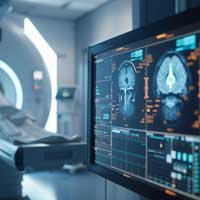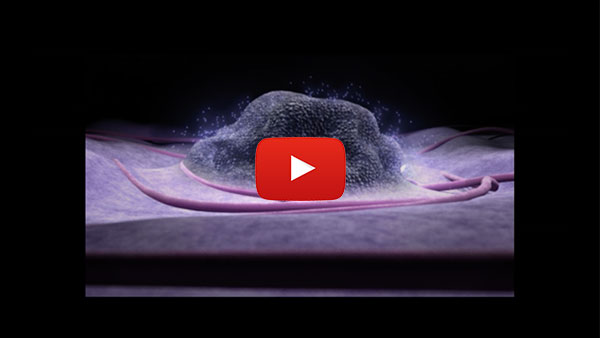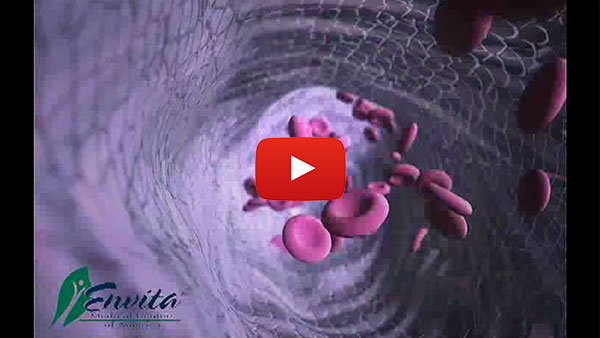Timeless Noble Prize Answer For Cancer Treatment

Cancers can develop from dysfunction in mitochondria, an important organelle within our cells which aids in blocking and policing cancer cell development. Envita believes that helping the mitochondria to achieve health and stay healthy plays an important role in cancer treatment.
Mitochondrial health is particularly important in patients dealing with infectious neurotoxins and environmental toxic causes of cancer. Mitochondria are involved with providing energy to healthy cells, while cancer cells use a different process and different energy supply. Let's examine how this can shape your treatment in a variety of ways.
Mitochondria's Crucial Background For Cancer Repair
Mitochondria are known as the "power plants" of cells, because they generate ATP (adenosine triphosphate,) which is used as a source of the cells' chemical energy. Mitochondria are also involved in apoptosis (programmed cell death), regulation of cellular metabolism, cell signaling and regulation of cell proliferation. They are key regulators of the cell cycle and growth. Mitochondria are organelles contained within cells, but they have their own DNA or independent genome.
Good News - Cancer Cells Are Vulnerable Via Sugar Metabolism
A normal cell produces energy through glycolysis and through the process of cellular respiration. During the process of glycolysis, a cell metabolizes (breaks down) glucose, which is a simple sugar. As a result, 2 ATP are formed and lactic acid is produced. The cell uses this method of energy production when it lacks oxygen, a state known as anaerobic respiration. This process occurs independently of the mitochondria.
The dominant role for mitochondria in the production of ATP is through cellular respiration. This process is dependent upon the presence of oxygen and therefore can only occur when the cell is in an aerobic state. When oxygen is present, the products of glycolysis are metabolized through the Krebs cycle, or citric acid cycle, as regulated by the mitochondria. The end result of cellular respiration and complete oxidation is 36 ATP, as opposed to only 2 ATP produced by glycolysis.
This is basic biochemistry, as mitochondrial function decreases in cancer cells as they shift to using a lesser anaerobic glycolysis form of energy. This is very good news as we can use nutrition and insulin potentiated therapies to target and starve cancer cells, all while sparing the healthy cells. Cancer cells have more concentrated amount of insulin receptors than healthy cells to compensate and feed their intense metabolism. So, this change in energy consumption means more targeted treatment with less harmful effects.
Altered Metabolism - A Symptom Of Cancer, But Not The Cause
Otto Heinrich Warburg, winner of a Nobel Prize in 1931, is now considered by many to be the greatest biochemist of the first half of the 20th century. Unfortunately, his cancer theory fell mostly upon deaf ears when he stated that altered metabolism "May be a symptom of [cancer], but not the primary cause."
The Warburg effect refers to an abnormality in the cell's energy production cycle, a condition that is present in cancer cells. Also known as aerobic glycolysis, the Warburg effect occurs when cancer cells convert glucose to lactic acid even when there is sufficient oxygen present. Recent studies suggest that this abnormality can occur as the result of an adaptive response to the induction of HIF-1 (hypoxia inducible factor 1) or because of mutations to mitochondria. The change in oxygen consumption serves a purpose to the cancer to recruit a new blood supply in angiogenesis.
Cancer Hates Oxygen
HIF-1 (hypoxia inducible factor 1) is responsible for balancing oxygen levels in the cell and its increased production can lead to a continuous cycle of abnormal cellular respiration as well as tumor angiogenesis. Increasing oxygen to the tumor may halt or slow down HIF-1 production, which concomitantly shuts down glycolysis and angiogenesis, thereby stopping tumor growth and spread.
Detoxifying The Body From Cancer-Causing Substances
Mutations to oncogenes (the mitochondria's DNA) and to the mitochondria's enzymatic pathways can cause dysfunction in the mitochondria and prevent them from carrying out their normal functions, such as the Krebs cycle. These mutations can occur as a result of exposure to infections, toxins and other carcinogens. Carcinogens abound in our surrounding environs, including our food, air and water supplies.
Researchers are yet to even identify a small portion of boundless carcinogens sources. The good news is that the body can use cytochromes, such as Cytochrome-P450, to detoxify itself from these carcinogens. Envita's decade-plus experience has proven that powerful intravenous detoxification is essential to removing causative agents. Once again detoxification is completely ignored by the convention medical system. And sadly, it is patients who suffer needlessly from this arrogant, ongoing oversight.
Envita's Comprehensive Smart Oncology® Program uses the best of oncology in combination with our aggressive natural therapies to focus on supporting and maintaining mitochondrial health as an important part of cancer care, as well as supporting the body's ability to rid itself of carcinogens through cytochrome pathways. Visit Envita's PPMR process to see how quickly we can assist you or contact one of patient care educators to get your personal questions answered.





















